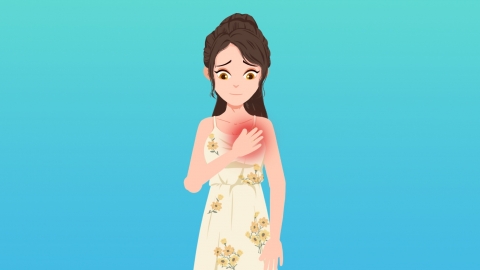What causes accessory breast pain?
Generally, accessory breast pain may be related to hormonal fluctuations, tight undergarments, mastitis, mammary hyperplasia, or breast cysts. It is recommended to seek timely medical advice and receive treatments such as general therapy or medication under a doctor's guidance. A detailed explanation is as follows:

1. Hormonal Fluctuations
Accessory breasts, like normal breasts, are regulated by hormones in the body. During periods with significant hormonal fluctuations, such as the menstrual cycle, pregnancy, or lactation, accessory breasts may experience pain or discomfort due to hormonal stimulation. Regular self-examination of the breasts and attention to breast health are recommended.
2. Tight Undergarments
Wearing overly tight undergarments may compress the accessory breast, causing poor blood circulation and localized pain. It is advisable to choose well-fitting, comfortable undergarments and avoid wearing tight clothing for extended periods.
3. Mastitis
Mastitis is an inflammation of the breast caused by bacterial infection, nipple injury, milk stasis, or other factors. The inflammation leads to congestion and edema of the accessory breast tissue, resulting in pain. It is usually accompanied by symptoms such as local redness and swelling, fever, and nipple discharge. Patients may follow medical advice to use medications such as amoxicillin capsules, cefalexin capsules, and metronidazole tablets for treatment.
4. Mammary Hyperplasia
Mammary hyperplasia is typically caused by endocrine disorders, excessive estrogen levels, or other related factors. Breast hyperplasia leads to enlargement of the accessory breast tissue, structural disorder, and subsequent pain. Symptoms generally include distending pain in the accessory breast and menstrual irregularities. Patients should follow medical advice to use medications such as Ruping Xiaoyan capsules, Xiaoru Lidan capsules, and Runing granules for treatment.
5. Breast Cysts
Breast cysts are commonly caused by milk stasis, blocked mammary ducts, or other reasons. Cystic masses in the accessory breast may compress surrounding tissues, causing pain. Symptoms may also include breast lumps and nipple discharge. Patients may use medications such as Guizhi Fuling capsules, Ruhe Naixiao liquid, and Ru'an capsules under a doctor's recommendation.
Maintaining good lifestyle habits is important, including a balanced diet, moderate exercise, and a reasonable schedule. Additionally, keeping the breasts clean and avoiding squeezing or bumping the breasts can help maintain women's health.










